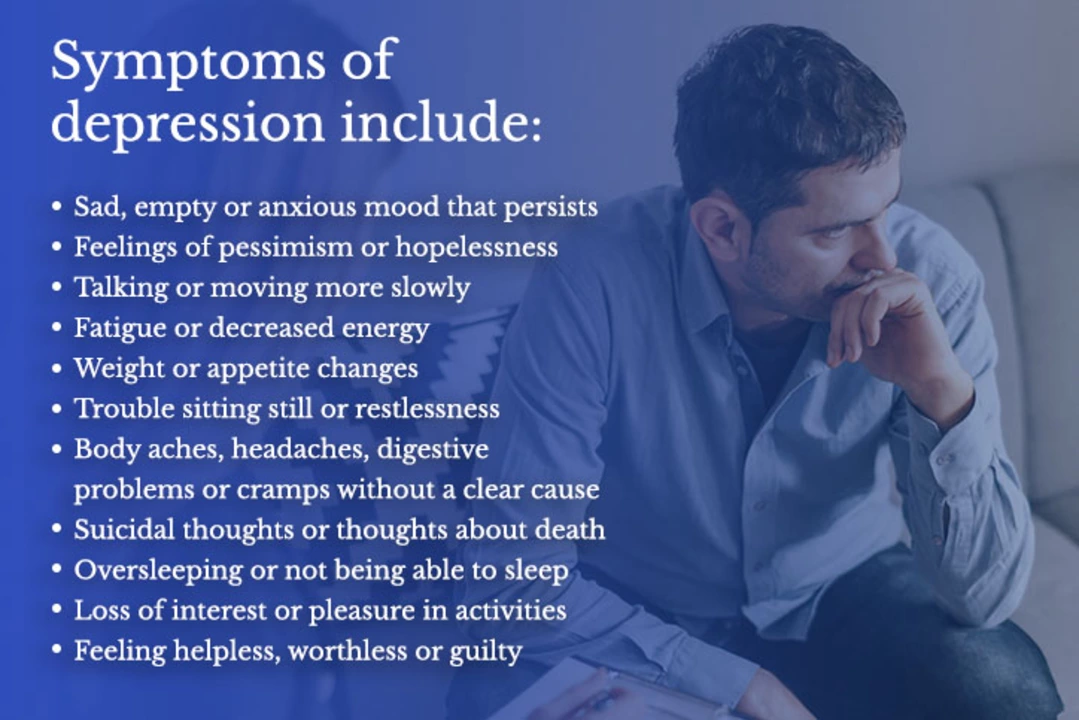Major Depressive Disorder: Straightforward Signs and Smart Steps
Feeling stuck, flat, or hopeless for weeks? Major depressive disorder (MDD) is more than a bad day — it’s a medical condition that changes how you think, sleep, eat, and act. This page gives clear, useful steps you can take right now: how to spot symptoms, basic treatment choices, safety tips when dealing with medicines, and when to get urgent help.
What to watch for — real signs, not just sadness
Depression can look different from person to person, but these things are common: low mood most of the day, loss of interest in things you used to enjoy, big changes in sleep or appetite, trouble concentrating, low energy, persistent guilt or worthlessness, and recurring thoughts about death or suicide. If symptoms last two weeks or more and interfere with work, school, or relationships, that’s a red flag.
Keep a simple daily log for two weeks: note mood, sleep hours, appetite, and any troubling thoughts. This helps you and your clinician see patterns quickly and decide next steps.
Treatment options and safety tips
Treatments work. The main options are psychotherapy (talk therapy), medications, or both. Cognitive behavioral therapy (CBT) and interpersonal therapy are common and practical. Antidepressants — SSRIs, SNRIs, bupropion, mirtazapine, and others — can reduce symptoms but usually take 4–6 weeks to show benefit. Meet with a prescriber to talk side effects and realistic timelines.
If you’re worried about medications, we’ve published pieces comparing options (like alternatives to bupropion) and guides on specific drugs. If you buy meds online, pick pharmacies that require a prescription, show a physical address, and have clear contact info. Avoid sites that sell controlled meds without a prescription; they’re often unsafe.
Practical self-care helps: keep a sleep routine, move your body most days (even short walks help), eat regular balanced meals, and cut late-night screens. Small, steady steps beat intense but short-lived efforts.
When switching or stopping meds, always consult your prescriber. Abrupt stops can cause withdrawal or relapse. If a med causes worrying side effects — severe restlessness, high anxiety, breathing trouble, or confusion — contact your clinician right away.
If you have any thoughts of hurting yourself or others, call local emergency services or a crisis line right now. If you’re in the U.S., the 988 Lifeline connects you to trained counselors. Tell someone you trust where you are and ask for help getting to safe care.
Before your appointment: write down your symptoms, sleep and appetite notes, a list of current meds and supplements, and any family history of mental illness. Ask about expected timelines, side effects, and what to do if things get worse. Clear questions make for better care.
Depression can feel isolating, but help is available. Start with small steps: track symptoms, reach out for an appointment, and keep safety in mind when handling medications. You don’t have to figure this out alone.

